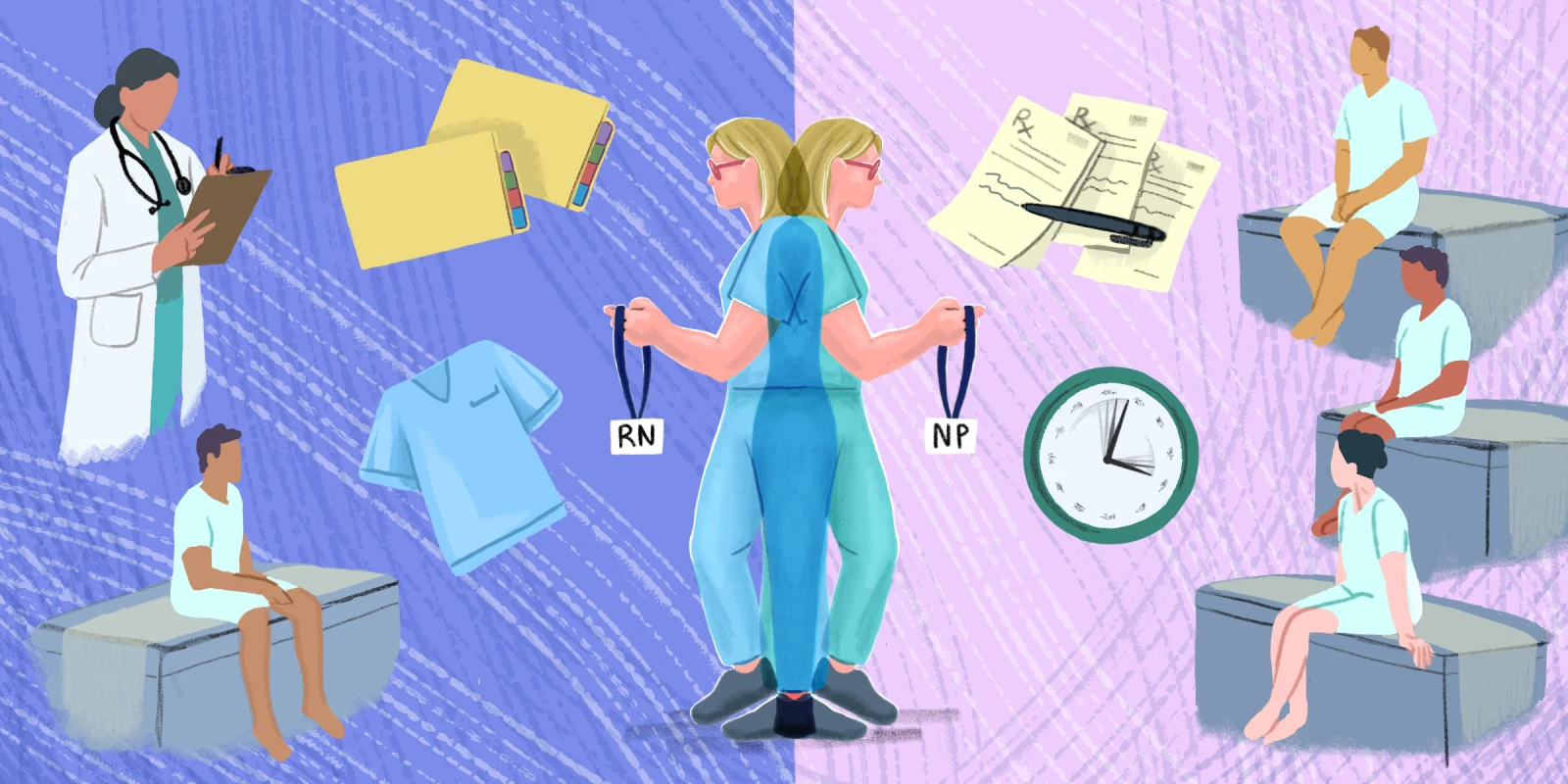There are many things over the last 11 years I have learned in my role as a nurse practitioner. I certainly would not be able to write them all down into a list, but there are six that I fall back on almost daily (in no particular order).
1) What you don’t know can hurt you and others.
It can be hard to figure out the parameters of your role and the depth of your knowledge level when you are new at this job. It is easy to think that you probably know the answer, which leads you to go in overconfident and risk causing serious harm to a patient — or embarrassing yourself horribly. For this reason, it’s important to take a step back and reflect on what you don’t know. With the fast tracking of clinicians into patient care due to primary care shortages, this reflection is more necessary now than ever.
As APPs working in a system that often privileges doctors, I do think there is a feeling that we are coming across poorly if we admit we don’t know something. But admitting we don’t know isn’t incompetence. It’s being honest and humble about the fact that we are human, not inept. After all, even the most seasoned doctors seek answers and opinions from colleagues on a regular basis; it isn’t wrong to do so.
2) Salary is important, but it’s not everything.
I work in East Tennessee and it is a beautiful place to live, but it is also very oversaturated with APPs and it’s rural. The salaries here tend to be lower than the national average due to the lack of demand. Many employers cite our lower cost of living for the wages. I’ve come to terms with this, and have decided to prioritize flexibility over trying to compete to get a higher salary. My decision to work for the companies and physicians that I have worked for has been based on my schedule, my job duties, and my ability to have greater family time. I currently have a position that pays a little less than normal, but it works for me because it allows me to work the way I want: I have office hours instead of covering hospital call (inpatient APPs are paid more), and I only have a four-day work week.
3) Similarly, you are more than your job.
Sure, I am proud to be an APP. I enjoy my work immensely! I work for amazing physicians and have awesome staff. That being said, I’m also a wife, mother to three adult children, sing on the worship team at church, love my friends, and enjoy hiking in the beautiful mountains where I live. Don’t let your job define your worth. It never ends well. At some point, you will either change jobs or you will retire and if your self-worth is wrapped up in what you do for a living, you set yourself up for a crisis of identity down the road.
4) DO NOT, REPEAT, DO NOT get involved in office politics or gossip sessions.
This is a good general rule as a person, but as a clinician it can ruin careers and it makes you look petty and unprofessional. Understand your chain of command and use it appropriately. Show up to work on time, do your job well, and go home. Sure, you can be friendly with workmates, but have friends outside of work. I developed close relationships with workmates at a previous job and it really made it hard to address personnel issues. Problems arise when you aren’t seen as a clinician, but as “my friend.” For instance, how are you supposed to feel when you, as clinician, know that your nurse called out sick because she met a guy at the bar and “just can’t be bothered with work today” — leaving you to pick up the slack? it damages both the friendship and the professional relationship. The friendship isn’t worth the work strain and stress. Tread cautiously.
5) In the words of Kendrick Lamar, “be humble.”
This also falls under good general human behavior; however, there is always that one clinician who acts like they’re beyond reproach — like their pants somehow got on their body in a magical way and their bums smell like flowers on a spring day. Don’t be that clinician. Remember that while you are in a position of authority, you don’t have to be authoritative with the people who work for or with you. You are never above cleaning a room, rooming a patient, or even helping with tasks that your medical assistant (MA) would normally handle. Once a nurse always a nurse. It drives me bananas when one of the older physicians says, “Let the MA do that” while my MA is drowning in phone calls and juggling the other patients in office. Help the MA out when you can.
6) Family practice deserves respect.
The last pearl, as it were, has two parts. Part one is that I started in family practice and truly enjoyed it with no intention of moving to a specialty practice. I happened to know a doctor who worked in gastroenterology and they were looking for an APP. At the time, my office was undergoing massive upheaval after my mentor physician had retired. I am curious enough about all things that gastroenterology seemed like it would be challenging and interesting. I made the transition fairly well, mainly because of amazing mentors and colleagues.
What I have learned is that while specialty sounds exciting, it is worth the time to work in family practice to truly understand the disease processes and how they work in concert with one another. Rarely can you do something to a person with diabetes that won’t impact cardiac, renal, hepatic, or vascular function. There are some clinicians who would argue that going straight into a specialty allows people to focus on one system. I did have a physician who I trained with tell me that. I happen to take the view that you have to know a little bit about everything in order to understand how a specialty is affected by all the other moving parts. A good example that I have run into recently is patients with abdominal pain that can’t be explained by the usual work-up. When you look at their medical history there is no glaring GI cause, but you see that they have had multiple cardiac stents, peripheral stents, and they are diabetic. The puzzle pieces start to point toward a vascular source such as mesenteric ischemia, so they get the proper imaging and a referral to vascular specialists.
The second part of this observation is that you should never lose your willingness to pick up a phone and call a PCP to clarify concerns or findings, or to ask questions and put your heads together about difficult cases. They know the patient well and can be a great source of information in regard to social systems that may come into play with treatment plans. If you choose to end up working in a specialty practice, you weren’t smarter than the other clinician, you just have focused on a specialty area of a body system. It points back to being humble and always having a willingness to be a team player. Someone is entrusting their care to you, so don’t let your ego get in the way of providing it. The number of times I’ve called a patient’s PCP and been met with “Thank you so much for calling me, I rarely get these calls, but they are always very helpful” has always surprised me. I am surely not the only one doing this. I know I’m not, but in the era of the EMR, people tend to not reach out as often.
Whatever you choose to do in this career, do it with the goal of learning something new every single day. It can be done and it makes you a better NP and a better person. Staying curious and open to learning is a skill. I wish you luck on your NP journey.
What are the main lessons you have learned as an NP? Share in the comments!
Allison Falin is a nurse practitioner in Maryville, TN. She enjoys weightlifting, hiking in her nearby Smokies, and just being outside. She has practiced as a NP for 11 years and RN for a cumulative 27. She and her husband have three adult children and four dogs. She is on threads as @alliefnp. Allison is a 2024–2025 Doximity Op-Med Fellow.
Illustration by Diana Connolly






